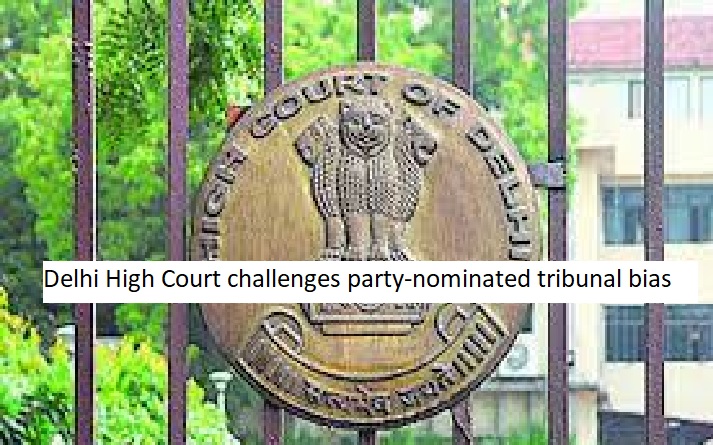


The Delhi High Court recently ruled that an arbitration clause granting a party the authority to nominate 2/3rds of the arbitral tribunal undermines the principle of 'counter-balancing' established by the Supreme Court. Justice Jyoti Singh, presiding over the case, emphasized that such a provision raises concerns about the neutrality and impartiality of the arbitral tribunal.
The case originated from an agreement dated August 3, 2021, between two parties that included an arbitration clause specifying a three-member tribunal for dispute resolution. The clause outlined that the petitioner could select its nominee from a pool of four names submitted by the respondent, while the remaining two arbitrators, including the presiding arbitrator, would be nominated by the respondent.
Disputes arose between the parties, leading the petitioner to invoke the dispute resolution clause. However, the respondent failed to respond to the petitioner's request to appoint a conciliator. Consequently, the petitioner invoked the arbitration clause and approached the court to appoint an arbitrator.
The court identified issues with the nomination procedure, particularly the narrow panel of four arbitrators from which the petitioner could choose its nominee. This procedure contradicted the court's precedent, emphasizing the necessity for a broad-based panel, as per the Supreme Court's directives.
The court ruled that allowing a party to nominate the majority of the arbitral tribunal is legally invalid for two reasons. Firstly, the panel's narrow scope fails to meet the Supreme Court's requirement for a broad-based selection process. Secondly, concentrating the selection within a limited pool raises doubts about the neutrality and impartiality of the tribunal, as affirmed by the court.
Additionally, the court criticized the respondent's panel, consisting solely of four names and lacking diversity. Notably, all panel members were ex-employees of the respondent, making it neither numerically broad-based nor diverse in composition.
In light of these findings, the court granted the petition, appointing arbitrators for both parties. The appointed arbitrators were then tasked with selecting the presiding arbitrators, ensuring a fair and balanced tribunal composition.
This ruling by the Delhi High Court underscores the significance of upholding the principles of fairness and impartiality in arbitration proceedings. The decision serves as a reminder that arbitration clauses should adhere to established legal principles, promoting a diverse and unbiased composition of arbitral tribunals to ensure a just resolution of disputes.
TAGS: Delhi High Court Arbitration Clause Counter-balancing Supreme Court Justice Jyoti Singh Neutrality Impartiality